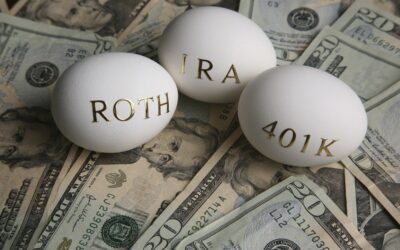Is a Property Fix-up and Sale an Investor or a Dealer Property?
Background
I’m an independent computer consultant who nets $100,000 from my proprietorship.
I bought a house in March 2019, fixed it up, and sold it in April 2020 at a net profit of $85,000.
I bought another house in May 2020, fixed it up, and sold it in June 2021 at a net profit of $125,000.
Question
These are my first two properties. Does the IRS consider me a real estate dealer or a real estate investor?
Answer
This is a tough call.
If you keep doing this, you will be a dealer, without question.
The Difference
If you are a real estate dealer, you face ordinary income and self-employment taxes.
If you are a real estate investor, you can qualify for tax-favored, long-term capital gains on sales when you hold the properties for more than one year, as you did with both of the properties in your question.1
Situation
In spite of all the litigation over real estate dealer and investor status, there’s no bright-line test that will give you a definitive answer to your question.
Section 1221(a)(1) defines dealer property as “property held by the taxpayer primarily for the sale to customers in the ordinary course of his trade or business.” 2
Although you could be heading that way, you are not currently a builder or developer clearly in the business of selling inventory to customers. On the other hand, you are not simply an investor who purchased the property to hold it for appreciation or to use it as a rental and collect rents.
There is no question that your purpose in buying the properties was to actively fix them up and sell them at a profit. One key thing that can help you get tax-favored investor status (capital gains on your profits) is that you did this only twice.
Assertion
Your situation boils down to this:
·You look like an investor with only two sales.
·You look like a dealer because you bought the properties knowing that you had to improve them to make a profit.
·If you spent lots of time fixing up the properties, you look more like a dealer. Of course, if you spent not too much time on the real estate and lots of time on your computer business, you look more like an investor.
You are in limbo with your facts and circumstances. Your best tax approach is to assert that you are an investor.
Your Tax Preparer
Of course, if your tax preparer knows the details of your fix-up and sale, he or she must concur that you have a reasonable basis for your position.3 Should there be no reasonable position, both you and the preparer are subject to penalties.
As we said at the beginning, this is a tough call—not only for you, but also for your tax preparer.
Takeaways
1. Periodically buying property, fixing it up, and selling it makes it look like dealer property. But when you seldom do this, the property can look like investor property.
2. If you hold the property for more than a year from the time of purchase to the close of escrow, investor status gives you tax-favored, long-term capital gains treatment.
3. When you buy and sell without fixing up the property, or when you buy and rent and then sell, you have strong investor attributes.
4. The fix-up, remodel, development, etc., give you dealer attributes.
5. The whole issue of dealer versus investor status is a facts-and-circumstances classification, and it’s a tough call for both you and your tax advisor.
1 IRC Section 1222(3)
2 IRC Section 1221(a)(1)
3 Reg. Section 1.6662-3(b)(3)
Backdoor Roth IRA Opportunities Still Available After TCJA
TCJA Tax Reform Sticks It to Business Start-Ups That Lose Money Good news. The Tax Cuts and Jobs Act (TCJA) didnot harm the backdoor Roth strategy. As you likely know, the Roth IRA is a terrific wayto grow your wealth with a minimum tax downsidebecause you pay the...
How to Deduct Medicare as a Business Expense
How to Deduct Medicare as a Business Expense Premiums for Medicare health insurance can add up to a substantial sum. That’s especially true if you have a high income, and you’re married and both you and your spouse are paying premiums. Fortunately, the premiums...
How to Calculate and Improve Your QBI from a Partnership
How to Calculate and Improve Your QBI from a PartnershipA general partner is taxed on partnership income that comes to him or her in the form of guaranteed payments and profit distributions. Profit distributions are qualified business income (QBI) for the Section 199A...
When the Second Office in the Home Is a Principal Place of Business
When the Second Office in the Home Is a Principal Place of Business When possible, you want to claim that your office in your home qualifies as a principal place of business because this classification gives you the home-office deduction, and eliminates commuting from...
Improvement Property Update
Improvement Property Update Qualified improvement property is any improvement to the interior portion of a building that is nonresidential real property (think office buildings and shopping centers) if you place the improvement in service after the date you place the...
Terminating Your S Corporation Election
Terminating Your S Corporation ElectionTax reform may have you thinking of changing your S corporation to a C corporation, partnership, or sole proprietorship. With such a switch, you need to consider: How do I terminate the S corporation election correctly? What are...






